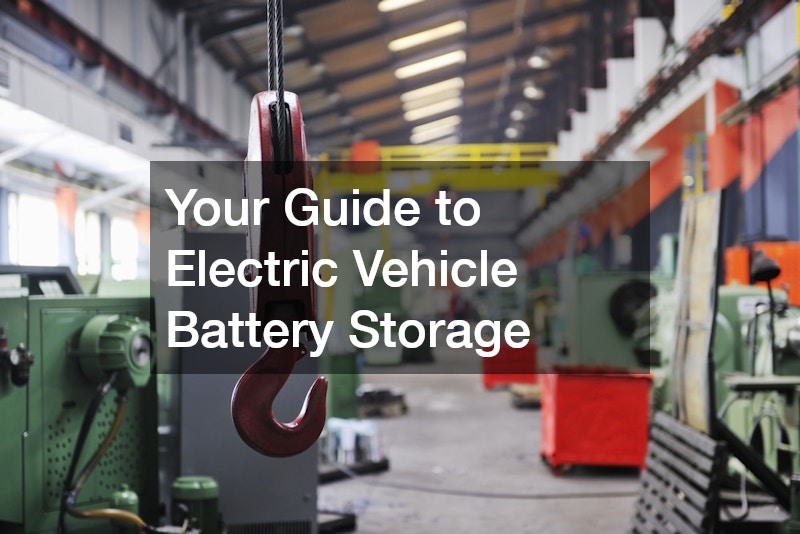As the world pivots towards sustainable energy solutions, electric vehicles (EVs) have taken center stage. Key to this transition is the development of efficient and reliable energy storage systems, encapsulated in the electric vehicle battery storage domains. Understanding how these systems work is crucial for both prospective EV owners and those interested in the technology’s evolution.
The push for electric mobility not only reduces emissions but also sparks advancements in battery technology. Electric vehicle battery storage is central to these advancements, and thus, understanding its nuances will provide insights into the future of transportation. This article serves as a comprehensive guide, discussing all aspects of EV battery storage for both novices and experts alike.
Basics of Electric Vehicle Battery Storage
Electric vehicle battery storage is fundamentally about how energy is stored, managed, and utilized within an EV. Typically, these batteries are lithium-ion, known for their high energy density and rechargeability, which make them ideal for EV applications. The proper understanding of how these batteries work is foundational to grasping their impact on the vehicle’s performance and longevity.
At the core of electric vehicle battery storage is the balance between energy capacity, weight, and durability. As manufacturers strive to improve these aspects, users benefit from EVs that can travel longer distances on a single charge and maintain optimal performance over time. In essence, the efficacy of an EV largely hinges on the sophistication of its battery storage system.
Manufacturers are constantly innovating to enhance the energy density and recharge cycles of these batteries. The push for solid-state batteries, for example, aims to revolutionize electric vehicle battery storage by offering higher efficiencies and longer lifespans. As research and development continue, more robust and sustainable battery storage solutions are on the horizon.
Challenges in Electric Vehicle Battery Storage
While electric vehicle battery storage technologies have advanced substantially, they are not without challenges. One major issue is the degradation of battery capacity over time, which affects the vehicle’s range and efficiency. This degradation is influenced by usage patterns, charging routines, and temperature conditions, all impacting the long-term performance of the EV.
Moreover, the production and disposal of lithium-ion batteries pose environmental concerns. The extraction of key materials, like lithium and cobalt, often results in environmental degradation and ethical issues in mining regions. Addressing these challenges is crucial to ensuring electric vehicles remain a sustainable alternative to traditional fossil-fueled cars.
Innovations in Electric Vehicle Battery Storage
Innovations in electric vehicle battery storage are rapidly transpiring, with manufacturers and researchers striving to push the boundaries of what is possible. One promising development is the advancement of solid-state batteries, which offer greater safety and energy storage capabilities compared to traditional lithium-ion batteries. This technology has the potential to redefine the EV landscape by providing increased range and reduced charging times.
Another area of innovation is the integration of smart battery management systems (BMS). These systems enhance battery performance by optimizing charging cycles and tracking the battery’s health in real-time. With these advancements, EVs can enjoy extended battery life and improved overall efficiency.
Research into alternative materials, such as graphene and magnesium, is also gaining traction. These materials hold the promise of delivering higher energy densities and faster charging capabilities. Such innovations could significantly transform electric vehicle battery storage, making electric mobility even more appealing and practical for a wider audience.
Future Prospects of Electric Vehicle Battery Storage
The future of electric vehicle battery storage looks promising, with numerous technological advancements on the horizon. By investing in research and development, the industry is poised to overcome current limitations and enhance battery efficiency significantly. The ongoing drive for sustainability will likely lead to new breakthroughs and the establishment of new industry standards.
As technology evolves, so does the potential for enhanced electric vehicle capabilities. Improved battery storage will enable greater travel distances, reduced environmental impacts, and decreased reliance on traditional fossil fuels. Consequently, more consumers are expected to embrace electric vehicles, accelerating the transition towards a more sustainable transportation ecosystem.
The journey of electric vehicle battery storage is a testament to human ingenuity and a harbinger of future possibilities. With ongoing advancements and a focus on environmental responsibility, the future looks brighter for electric mobility. As pioneers in this field continue to break new ground, electric vehicle battery storage will undoubtedly play a pivotal role in shaping a more sustainable world.
.










